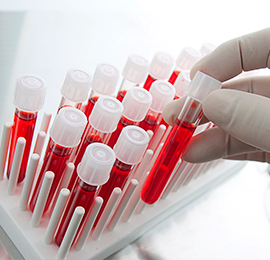
Hormonal Analysis
As hormonal imbalance is one of the commonest cause of infertility it is essential to assess and evaluate the hormones related to fertility problems. Ovarian function tests–These tests are looked to see how the hormones are functioning and working during your ovulation cycle.These hormone tests include the following: Luteinizing Hormone. Follicle Stimulating Hormone. Estradiol. Progesterone, Prolactin, Free T3.T4 and Thyroxine for females and Total Testosterone Free Testosterone for males.
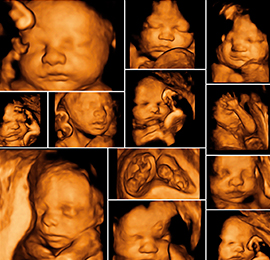
3D & 4D Ultrasound
Used to assess the female reproductive system pathologies to near perfection which will help in treatments and predict the chances of conception. If there is any problems like, fibroids, Uteine septum and anamolies, Polycystic ovaries, endometriosis it can be diagnosed and treated. Like regular ultrasounds, 3D and 4D ultrasounds uses sound waves to create an image of your baby in your womb. What's different is that 3D ultrasounds create a three-dimensional image of your baby, while 4D ultrasounds create a live video effect, you can watch your baby smile or yawn it is in correct position.
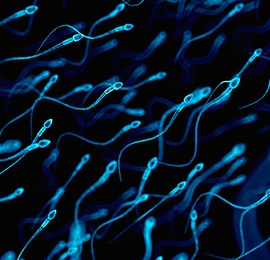
Advanced Andrology Lab
Andrology lab deals with variety of diagnostic testing is done to assess the various factors causing male infertility, Semen Collection & analysis related to infertility, Sperm processing for assisted reproductive technology (ART) for IVF & ICSI, Semen freezing and storage, Post-vasectomy semen analysis, Testicular biopsy, TESA, PESA evaluations, and DNA fragmentation tests.
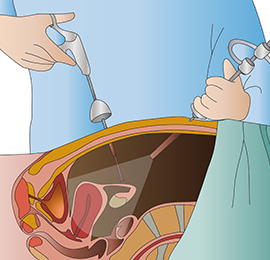
Laparoscopic Surgeries
- Adhesolysis
- Endometriosis
- Fibroids
- Polycystic Ovaries
- Ovarian Cyst
- Tubal Recanalisation
- Uterine Anomalies
- Laparoscopic Hysterectomy
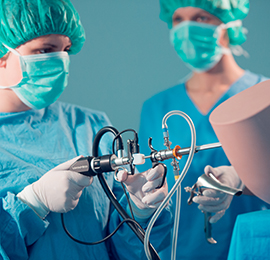
Hysteroscopic Surgeries
- Polypectomy
- Septal Resection
- Polycystic Ovaries
- Lateral Metroplasty
- Myomectomy
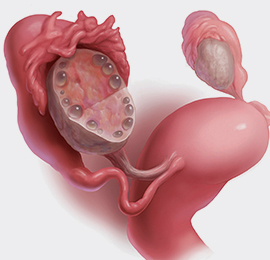
Poly Cystic Ovary Syndrome (PCOS)
Poly Cystic Ovary Syndrome (PCOS) is a condition which can affect the woman’s menstrual cycle, fertility, hormones and aspects of her appearance. It can also affect long-term health. This information is about the effects on patient’s long-term health and does not cover specific treatment options for PCOS. The system may vary from woman to woman. Some women have mild symptoms; while others are affected more severely by a wider range of symptoms. PCOS is a cause of fertility problems in a woman.
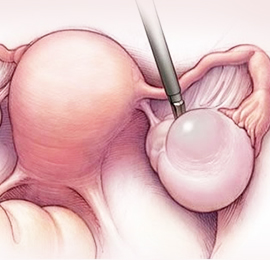
Ovarian Drilling
Laparoscopic ovarian drilling is a laparoscopic surgical treatment that can trigger ovulation in women with polycystic ovary syndrome (PCOS). Electrocautery or a laser is used to puncture the cyst of the ovaries. Studies of women with PCOS have shown that ovarian drilling results in a n 80% ovulation rate and a 50% pregnancy rate.
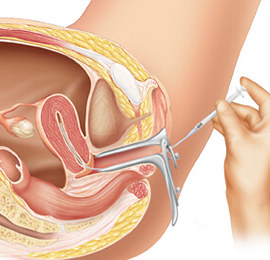
Intra Uterine Insemination (IUI)
Intrauterine insemination is a treatment; the sperm sample is washed and concentrated, then placed in a transfer catheter. This catheter is then inserted through the cervix and the sperms are injected into the uterine cavity. The sperms are then able to swim up to fallopian tubes where they may fertilize the egg.
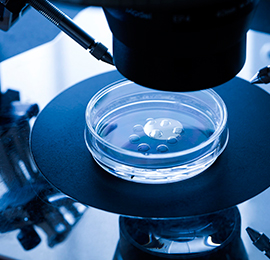
In Vitro Fertilization (IVF)
The basic IVF treatment involve the development of many good quality eggs by fertility drugs, monitoring of the complete cycle by means of ultra sound and diagnostic tests, Collection of eggs, Fertilization of eggs outside the Woman’s Womb in a test tube and transfer of embryos into the woman’s womb.
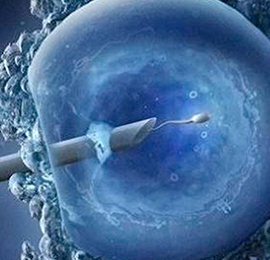
Intra Cytoplasmic Sperm Injection (ICSI)
ICSI provides help for men with severe sperm dysfunction and very low sperm count. In this procedure, a single sperm is micro manipulated and captured in glass needle and is injected directly into the egg. After fertilization the embryo transferred into the uterine cavity.
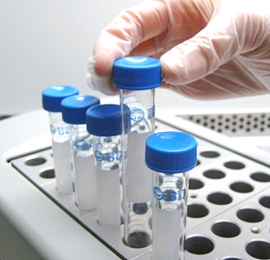
Sperm Donor
AID (Artificial Insemination Donor) is generally advocated for males with a low semen counts (Oligospermia) or Zero counts (Azoospermia), where treatment with drugs , Surgery and ART treatments like AIH, IUI, and ICSI have proven unsuccessful. It is an acceptable alternative to adoption.
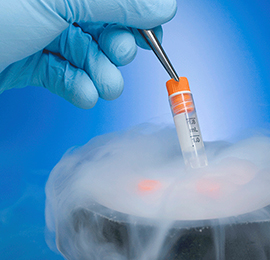
Cryopreservation of Sperms and Embryos
Cryopreservation is a procedure to preserve sperm cells and embryo. Sperm can be used later after cryopreservation for IVF and ICSI procedures. For human sperm longest reported successful storage is 21 years. A new method called vitrification is gradually replaced the conventional method. It involves ultra-rapid freezing so that, no ice crystal will not develop to achieve better results.
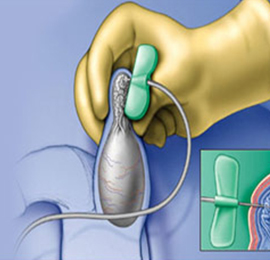
Percutaneous Epididymal Sperm Aspiration (PESA)
PESA is a technic used to determine sperm counts in the event of a possible blockage of the vas deferens. A small needle is inserted through the skin of the scrotum to collect sperm from the epididymis, where sperm are usually stored after production in the testes. It can also be used to extract sperm for intra cytoplasmic sperm injection(ICSI).
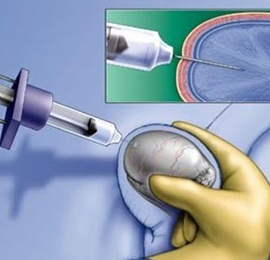
Testicular Sperm Aspiration (TESA)
TESA is the process of removing a small tissue from the testicle under local anaesthesia and extracting the few viable sperm cells present in that tissue for the purpose of ICSI. TESA is recommended to men who are unable to produce sperm by ejaculation as a result of primary testicular failure, congenital absence of the vas deferens or non-reconstructed vasectomy.
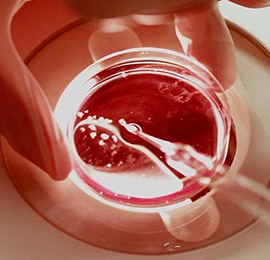
Egg Donor Programs
In egg donation, eggs are borrowed from a young woman called the donor, with her consent. These eggs are then fertilized with the sperms of husband of the recipient women and the resultant embryo is transferred into the womb of the recipient. Egg donation is also used in patients who are carrying major chromosomal defects so that they do not pass the genetic defect to their children. It is also suggested to males who may have a genetic disorder that could get transmitted to their progeny.

Surrogacy
Surrogacy is an arrangement between women and a couple or a individual to carry and deliver a baby. Women or couples who choose surrogacy often do so because they are unable to conceive due to a missing abnormal uterus, have experienced multiple pregnancy losses, or have had multiple in vitro fertilization attempts that have failed. The advantage of gestational surrogacy to the parents is that the embryo is created from woman’s egg and man’s sperms, so it biologically theirs.
